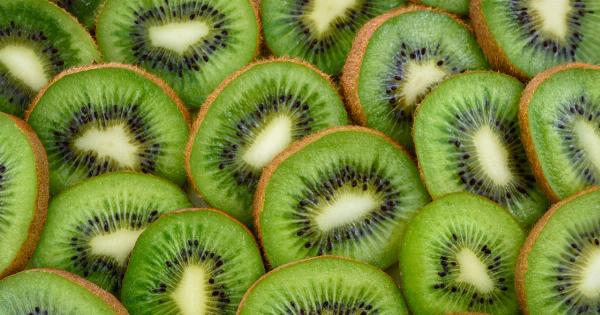When it comes to maintaining a healthy diet, fruits can be an excellent source of essential nutrients and fiber. However, not all fruits are created equal, and some could even harm your health when consumed in large quantities.
Here are five fruits to avoid and five better options to try:.
5 Fruits to Avoid
1. Pineapple
Pineapple can be a healthy addition to your diet when consumed in moderation, but it’s important to keep in mind that this fruit is high in natural sugars, specifically fructose.
Consuming large amounts of fructose in your diet is linked to a higher risk of obesity, type 2 diabetes, and other health issues.
2. Grapes
Grapes are another fruit that should be consumed in moderation. These small fruits are high in sugar and calories, which can significantly affect your blood sugar levels if overconsumed.
Additionally, grapes have a high glycemic index, which makes them less blood sugar-friendly than some other fruit options.
3. Mangoes
Although mangoes are an excellent source of vitamins, fiber, and folate, they are also high in calories and sugar.
This tropical fruit contains a whopping 46 grams of sugar per cup, which can quickly add up if you’re not careful with your portions.
4. Bananas
Despite their nutritious profile, bananas also have a high sugar and caloric content, making them a fruit that should be enjoyed in moderation.
Specifically, bananas contain a high amount of carbohydrates and can quickly spike your blood sugar levels, causing an energy slump shortly after eating.
5. Dried Fruit
Dried fruit may seem like a healthy snack choice, but it’s essential to keep in mind that the drying process concentrates the sugar content of the fruit.
Because of this, dried fruit is typically much higher in calories and sugar than fresh fruit and should be consumed sparingly.
5 Better Options to Try
1. Berries
Berries are an excellent fruit option for those looking to maintain a healthy diet. Berries are low in sugar and calories, making them a fantastic choice for those watching their blood sugar levels.
Additionally, berries contain high amounts of antioxidants and other nutrients, helping to boost your immune system and overall health.
2. Apples
Apples are another excellent choice for a healthy diet. These fruits contain a moderate amount of natural sugars and are high in fiber, making them a filling and satisfying snack option.
Apples are also rich in essential vitamins and nutrients and can help prevent and manage chronic diseases.
3. Citrus Fruits
Citrus fruits, such as oranges, lemons, and grapefruits, are an excellent source of vitamin C, which can help boost your immune system and keep you healthy.
Additionally, citrus fruits are low in sugar and calories, making them an excellent choice for those looking to maintain a healthy diet.
4. Kiwis
Kiwis are a nutrient-dense fruit that is low in calories and high in fiber. These little fruits are rich in antioxidants and other essential nutrients, making them a great choice for maintaining your overall health.
Kiwis are also linked to several health benefits, such as improved digestion and lower risk of heart disease.
5. Pomegranates
Pomegranates are another nutrient-dense fruit that can help you maintain a healthy diet. These fruits are high in fiber, vitamins, and antioxidants, making them a great option for those looking to boost their immune system and overall health.
Additionally, pomegranates are linked to several health benefits, such as improved heart health and reduced inflammation in the body.
Conclusion
When it comes to maintaining a healthy diet, selecting the right fruits can go a long way.
By avoiding high-sugar and calorie fruits such as pineapples, grapes, mangoes, bananas, and dried fruit, and selecting more nutrient-dense options such as berries, apples, citrus fruits, kiwis, and pomegranates, you can support your overall health and reduce your risk of chronic diseases.





























